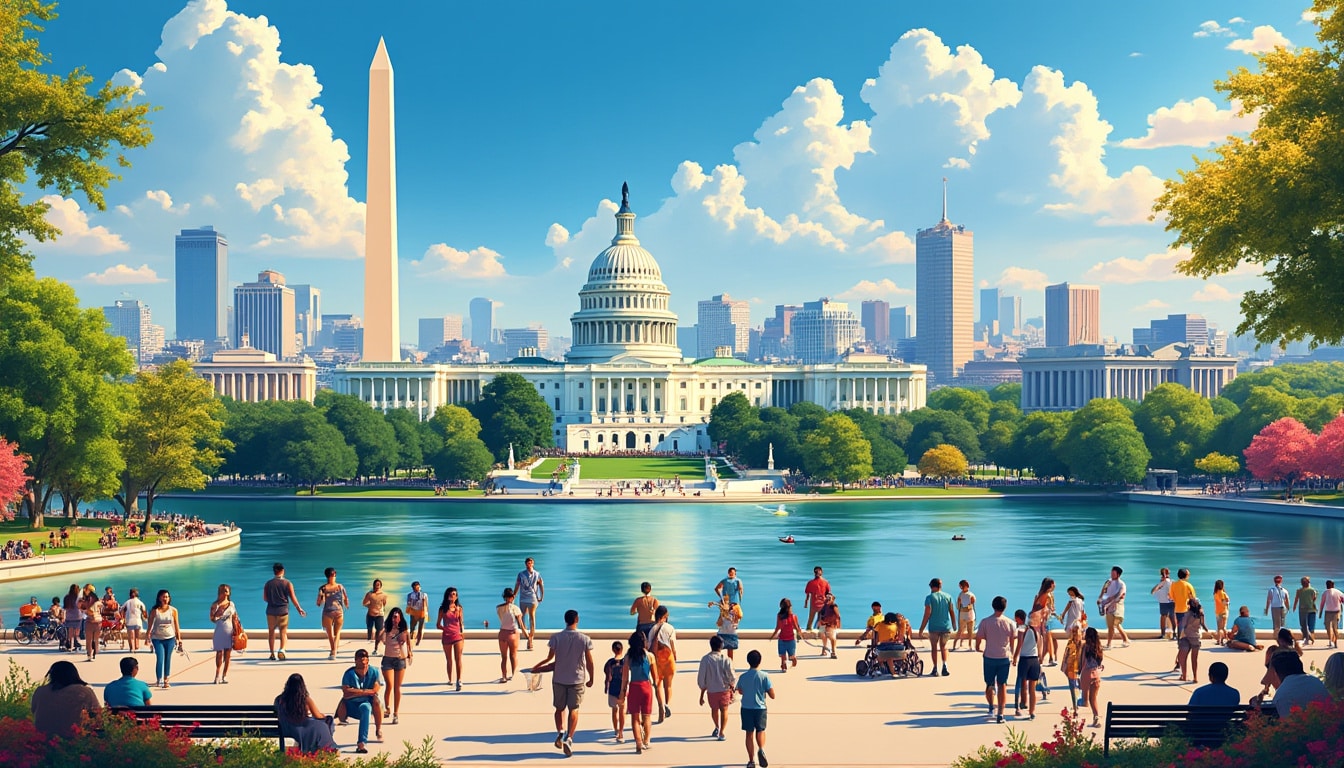The intricate tapestry of Washington, D.C. is not only defined by its political prominence but also by its vibrant demographics and unique geographical features. From the bustling streets of Capitol Hill to the serene pathways of Rock Creek Park, D.C. is a melting pot of cultures, ages, and economic backgrounds. The ever-changing census data paints a vivid picture of how the city’s population has evolved over the decades. In this in-depth exploration, we delve into the layers of demographics, geographical influences, and the dynamic cultural landscape that shapes this iconic American capital.
The Evolving Population Dynamics of Washington, D.C.
Through the years, Washington, D.C. has witnessed significant demographic shifts, reflecting broader national and global trends. A city founded with the intent to serve as the nation’s capital, it has adapted to changing times by embracing a diverse populace. The population statistics of D.C. are particularly telling, with data from the U.S. Census Bureau offering insights into the ever-fluctuating makeup of the district.
D.C.’s population trajectory has seen numerous transformations since the initial census. The modern demographic landscape is marked by a minority-majority status, where no single ethnic or racial group holds an absolute majority. According to recent estimates, the African-American community represents approximately 45% of the population, while the non-Hispanic White populace accounts for around 36%. This diversity is further enriched by a growing Hispanic and Latino community, as well as a significant Asian demographic.
- 👶 Age Demographics: The city has a relatively young median age, partly due to the presence of major educational institutions like Georgetown University and American University. These universities attract students from across the globe, injecting youthful energy into the cityscape.
- 💼 Economic Factors: The economic landscape has evolved substantially, with significant contributions from governmental, academic, and private sectors. The presence of landmarks like the Smithsonian Institution drives tourism, while the vibrant job market attracts professionals to the area.
- 🚸 Family Structures: Modern family dynamics in D.C. are as varied as its population. The city hosts a mix of single professionals, young families, and long-time residents, each contributing to its unique social fabric.

Cultural and Social Influences
The cultural vibrancy of Washington, D.C. is palpable, with the arts and media sector playing a pivotal role in shaping public discourse. Institutions like The Washington Post and National Geographic are headquartered here, contributing to a rich media environment. The city’s cultural scene is further energized by events at venues such as the Kennedy Center, downtown theaters, and an eclectic array of galleries showcasing local and international talent.
Additionally, the sports culture is thriving with teams like D.C. United, offering not just competitive matches but also a sense of community spirit. Such cultural elements serve to unite the city’s diverse population, fostering an inclusive environment where economic, racial, and social differences can converge harmoniously.
Geographical Characteristics and Their Impact
Washington D.C.’s geography plays a significant role in its demographics and urban development. Situated between Maryland and Virginia, with the picturesque Potomac River flowing through it, D.C. has a unique geographical setup. This positioning has historically influenced both strategic military considerations and transportation logistics.
The district covers a relatively small area of 68 square miles (177 km²), yet it boasts a remarkable array of landscapes, from urban settings to serene green spaces. The geography of D.C. has had a direct impact on its development patterns, zoning, and real estate markets.
Urban Design and District Planning
The city was meticulously planned with vistas in mind. Pierre Charles L’Enfant’s famous design aimed to replicate parts of Paris and Versailles, which is evident in the city’s wide, tree-lined avenues, public squares, and iconic circular intersections. These planning attributes have shaped the living patterns and business repartitions across the district, impacting everything from local markets to daily commutes.
The blend of historical and modern architecture further enhances D.C.’s cultural identity, creating a juxtaposition of styles that reflect its historical evolution. Landmarks like the Lincoln Memorial and contemporary structures such as the National Museum of African American History and Culture highlight the diversity of design that defines the district.
Moreover, D.C.’s public parks and recreational areas, such as the National Mall and Rock Creek Park, provide residents with abundant opportunities for leisure and outdoor activities, positively influencing the city’s livability and lifestyle choices.
Socio-economic Diversity and its Implications
The socio-economic landscape of Washington, D.C. is as diverse as its cultural one. The presence of governmental agencies and prestigious universities creates a unique economic ecosystem. A juxtaposition of wealth and poverty showcases the economic challenges and opportunities within the city.
In recent years, D.C. has seen a rise in property prices, reflecting the broader national trend of urban revitalization and gentrification. Neighborhoods around Capitol Hill and areas like Georgetown are prime examples of this economic dynamic, with historic homes fetching premium prices while new developments cater to a younger demographic evolving from students to professionals.
| 🏡 Neighborhood | 🏙️ Median Home Price | 📈 Population Growth | 💰 Average Income |
|---|---|---|---|
| Capitol Hill | $900,000 | 15% Increase | $100,000 |
| Georgetown | $1,200,000 | 10% Increase | $120,000 |
| Anacostia | $350,000 | 20% Increase | $50,000 |
Employment opportunities vary widely, with substantial government, academic, and scientific sectors creating diverse job markets. Economic diversification has also been spurred by innovation hubs and start-up incubators that attract professionals seeking dynamic careers. This blend of economic activities contributes to a varied profile of residents, from politicians and academics to creatives and entrepreneurs.
The Role of Education and Institutions
Education plays a transformative role in the demographics and socio-economic profile of Washington, D.C. Besides renowned universities like Georgetown and American University, which attract an international cohort, the city is home to numerous think tanks and research centers. These institutions not only influence local demographics by attracting a steady influx of students and professionals but also contribute significantly to the intellectual and cultural life of the city.
The city’s education system strives for inclusivity, as policymakers and educators work towards narrowing the achievement gap across different economic backgrounds. Partnerships with entities such as the White House Historical Association foster educational programs that engage the youth in understanding the city’s rich history.
Furthermore, media outlets including WUSA9 and The Daily Caller provide platforms for public discourse and education, reflecting the multifaceted dynamics of Washington, D.C.’s vibrant community.
- 🎓 Diverse Educational Landscape: Apart from traditional universities, professional schools and community colleges offer varied pathways for higher education and skill enhancement.
- 🏫 Public vs. Private School Dynamics: The presence of elite private schools alongside public institutions highlights educational disparities and ongoing efforts for educational equity.
The educational framework in D.C. not only impacts local demographics but also contributes substantially to its reputation as a hub of innovation and creativity. This creates a continuous cycle of development, with knowledge and cultural exchange nurturing the city’s progressive ethos.
FAQs
- What is the current population of Washington, D.C.?
As of 2025, Washington, D.C. has an estimated population of around 720,000 residents, reflecting a trend of gradual growth. - How do educational institutions influence D.C.’s demographics?
Universities attract a diverse influx of students and professionals, impacting local economies and cultural dynamics. - What are the main geographic features of Washington, D.C.?
The district’s geography is defined by its location between Maryland and Virginia, with significant features like the Potomac River and various parks contributing to its character.
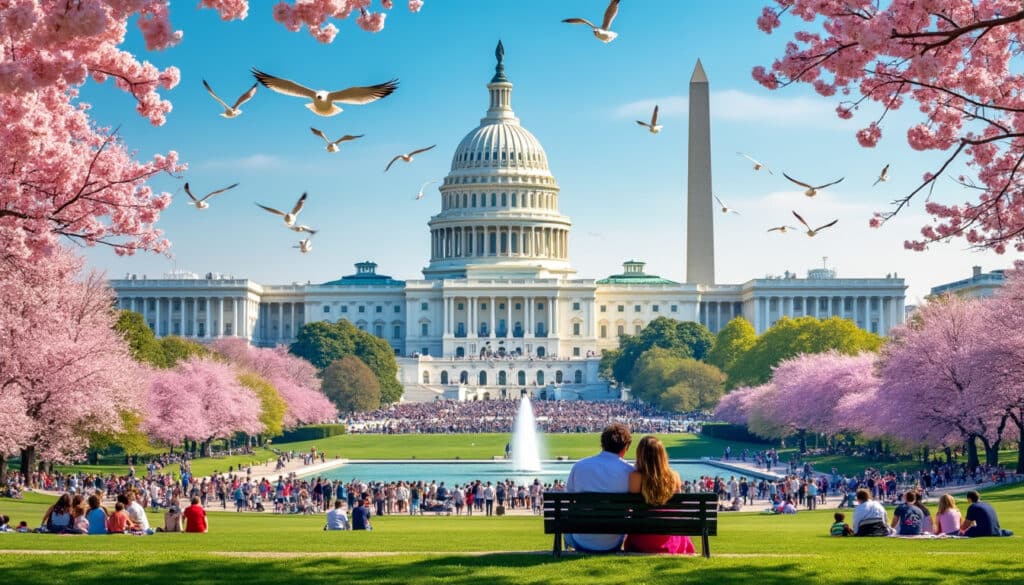
Fun Facts & Curiosities About Washington DC
Tucked between the states of Maryland and Virginia, Washington D.C. is more than just the heart of American politics. This vibrant city, known for its iconic landmarks and rich history, is a treasure trove of fun facts and curiosities. As…
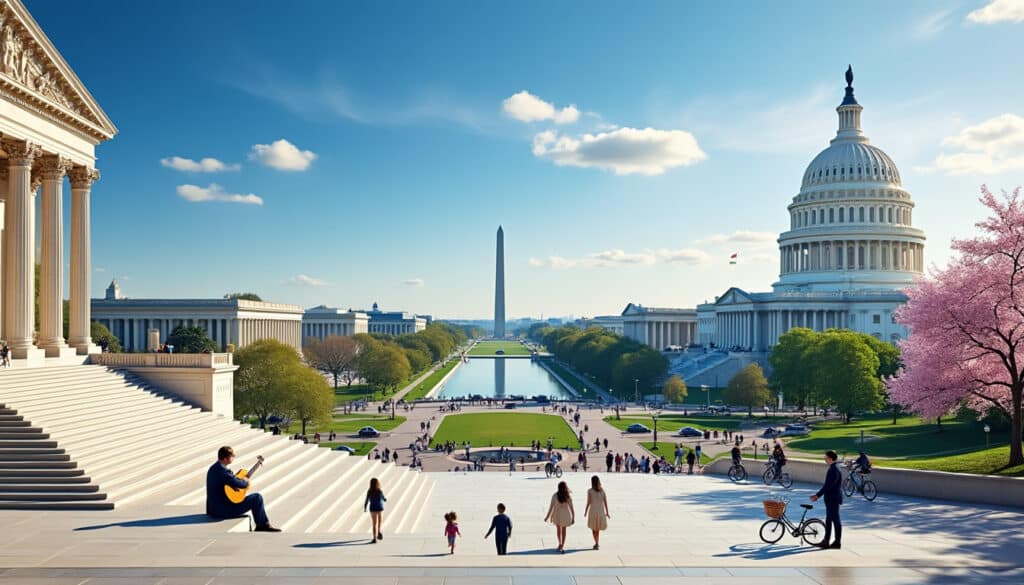
Architecture and urban features of Washington DC
Washington, D.C., with its timeless architecture and exemplary urban planning, stands as a testament to both historical grandeur and modern ingenuity. From the majestic columns of the U.S. Capitol reflecting the nation’s democratic ideals to the vibrant streets planned by…
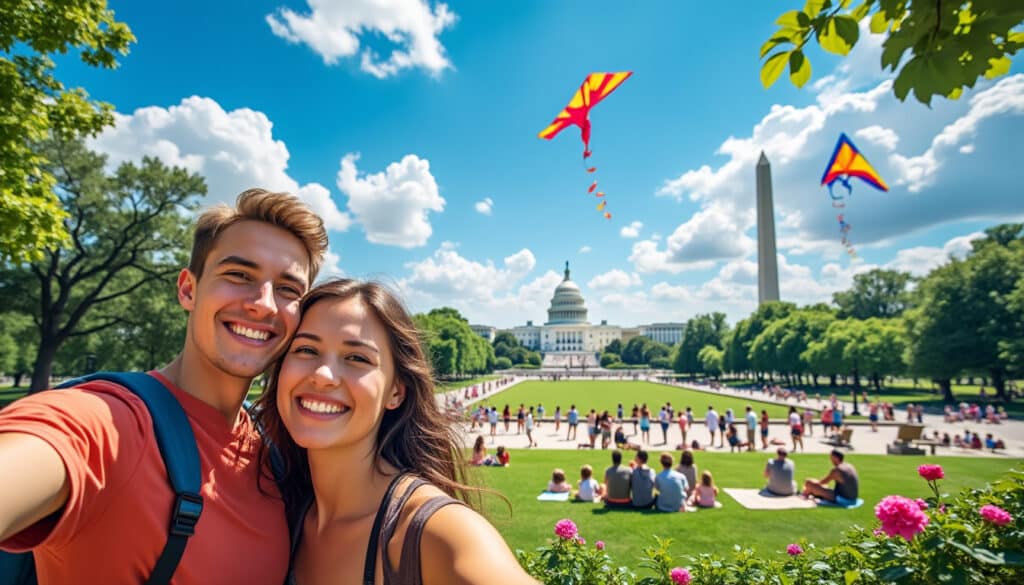
Basic facts about Washington DC
As one of the most iconic cities in the world, Washington D.C. is a place where politics, history, culture, and commerce converge. It serves as the heart of American democracy, offering an array of fascinating stories and landmarks that reflect…
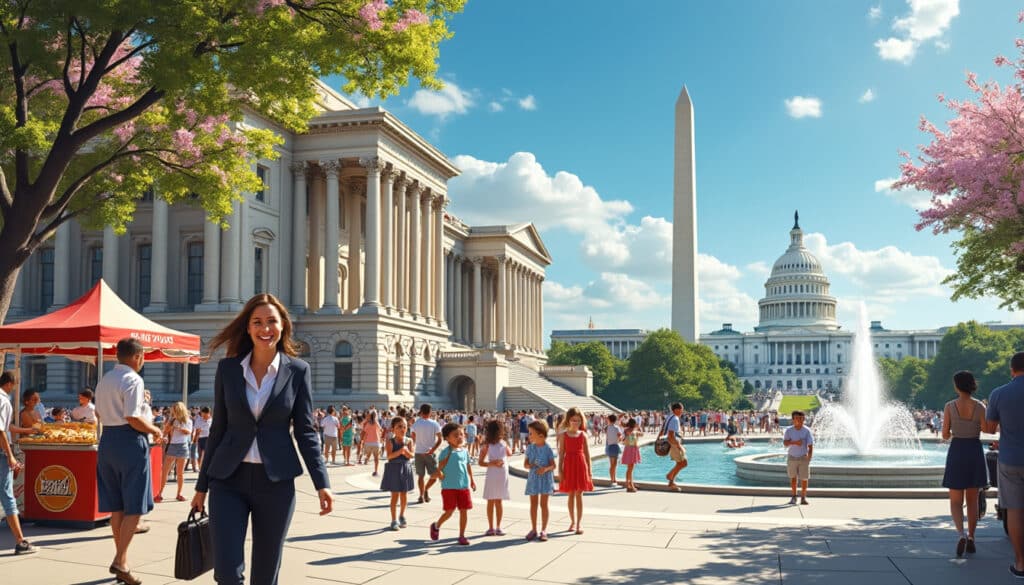
Washington D.C., the heart of American politics and a city rich with history and culture, offers an intriguing blend of opportunities for residents and visitors alike. From its grand landmarks and vibrant neighborhoods to its unique lifestyle, life in Washington…

Washington D.C., the capital of the United States, stands as a testament to the country’s rich historical heritage and political power. Founded in 1790 as a result of a compromise between Northern and Southern states, it has evolved from a…
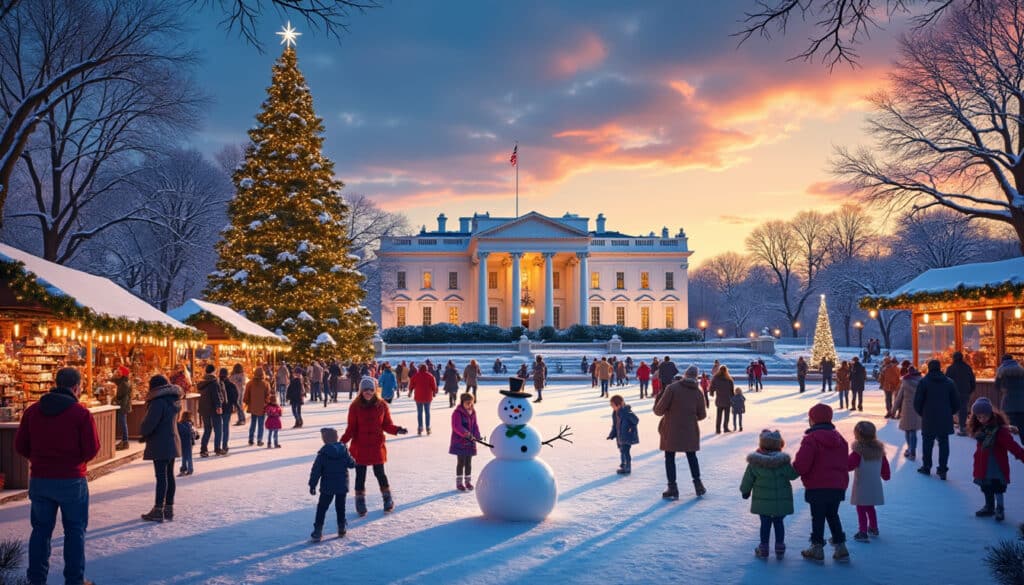
Holidays and celebrations in Washington DC
Washington, D.C., the nation’s capital, is not only a political and administrative hub but also a vibrant city rich with cultural events and celebrations. From the spectacular Cherry Blossom Festival in spring to the festive atmosphere of the National Christmas…
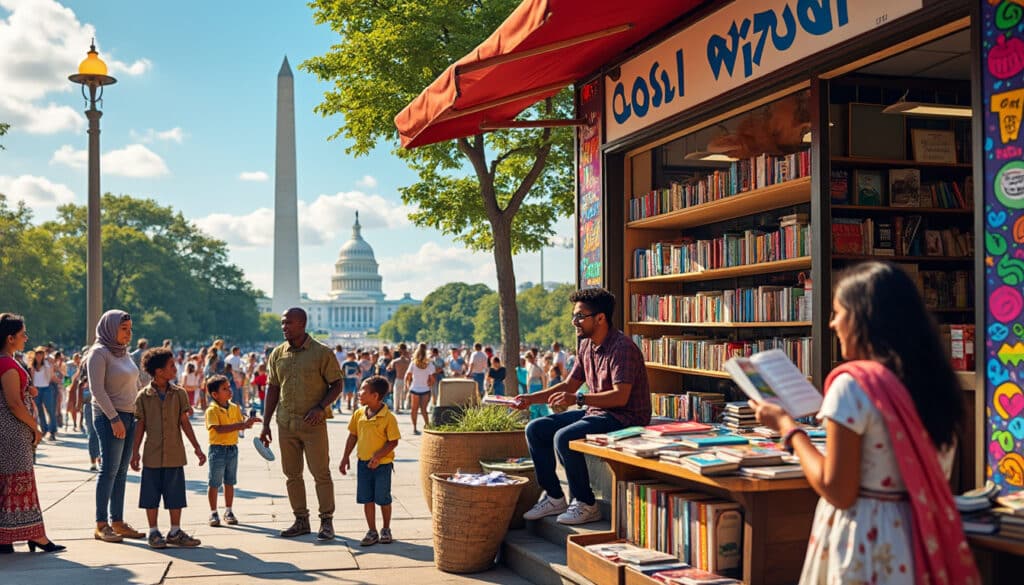
Language and spelling of Washington DC
Washington, D.C., a city known for its political influence and rich cultural history, has a unique linguistic landscape that mirrors its diverse population. From the official language to the countless dialects and international languages spoken here, the language and spelling…
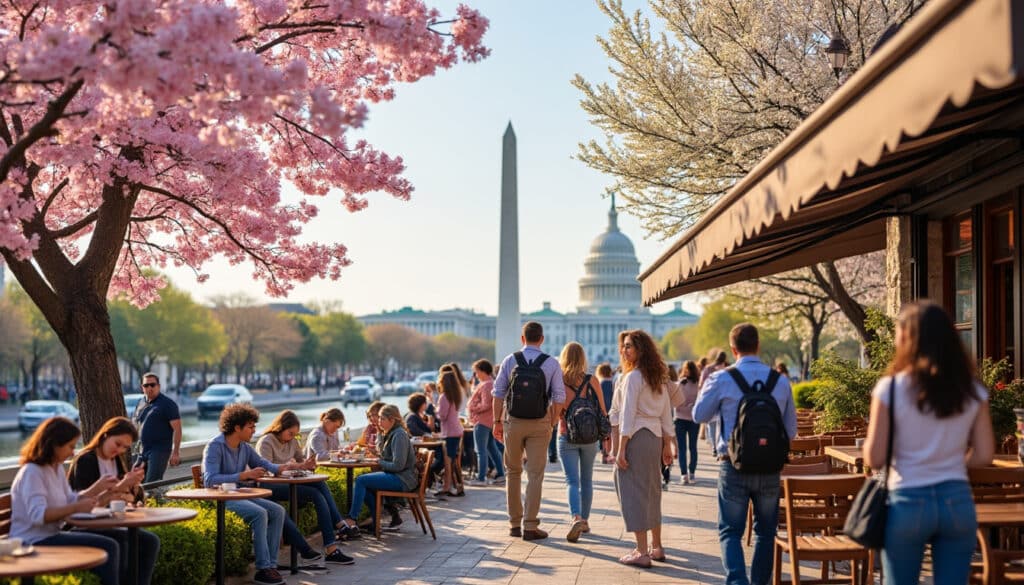
Local tips for tourists in Washington DC
Welcome to Washington, DC, a vibrant capital teeming with history, culture, and iconic landmarks. As you plan your visit to this fascinating city, keep in mind that navigating its streets, exploring its museums, and experiencing its local flavors can be…
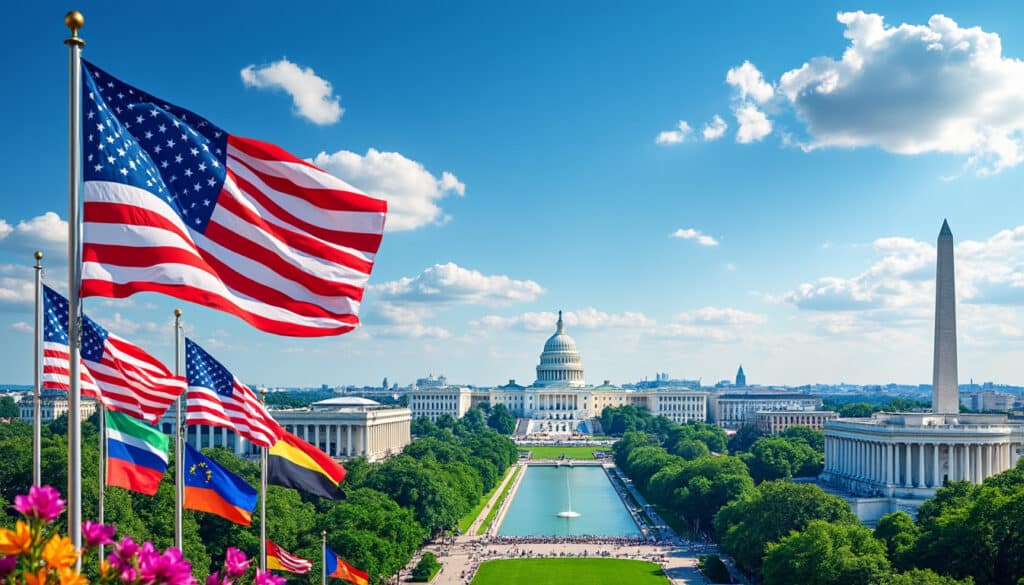
Names, flags, and identity of Washington DC
Washington, D.C., a deeply historical and symbolic entity, embodies the spirit of the United States. Known not just as the nation’s capital, it represents a unique fusion of political power, cultural diversity, and historical legacy. From its original designation as…
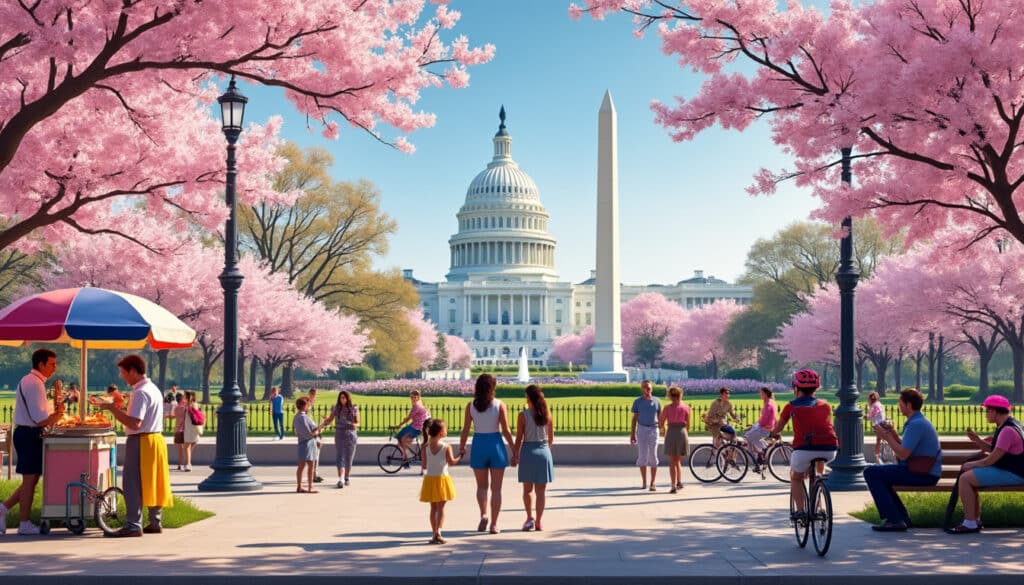
Reputation and identity of Washington DC
Washington, D.C., often referred to simply as ‘D.C.’, is a unique urban landscape that carries the weight of a nation’s identity on its historical and geographical shoulders. As the capital of the United States, it meshes a deep history with…
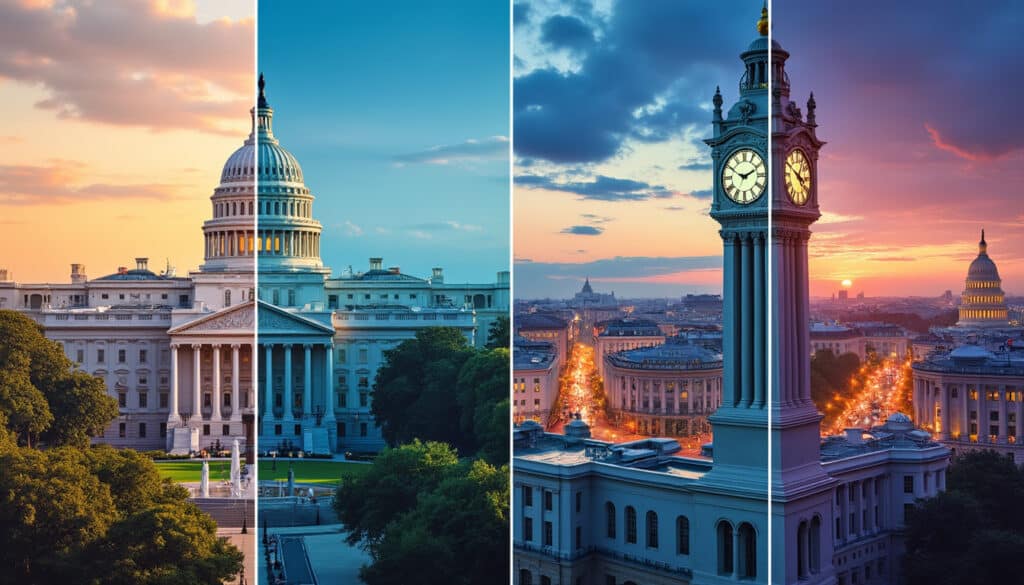
Time and time zone in Washington DC
Washington D.C., the heart of the United States, is not only a hub of political activity but also a focal point for travelers and residents when it comes to understanding time zones. Situated on the Eastern Seaboard, this vibrant city…
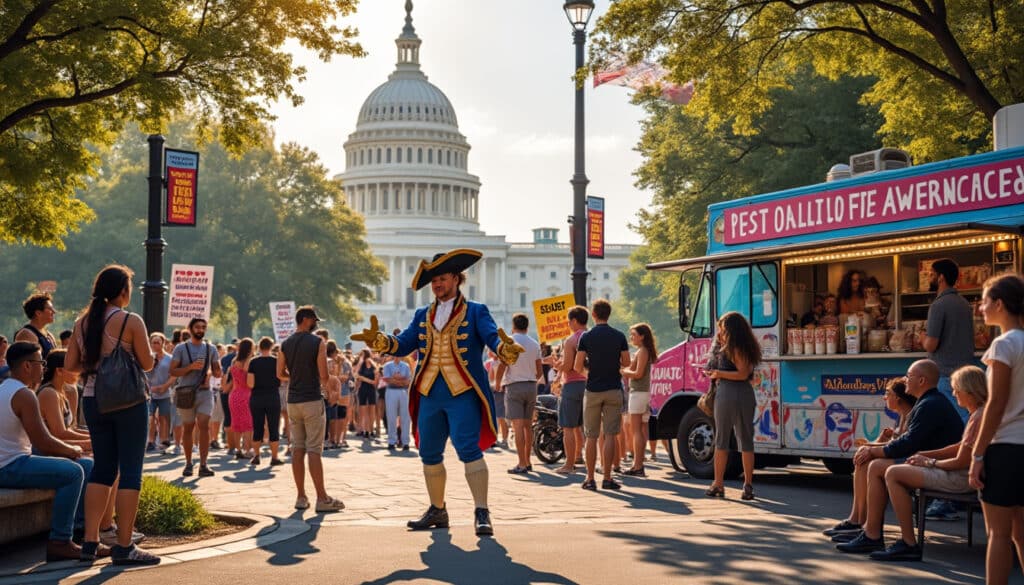
Unusual facts and social issues in Washington DC
Washington, D.C. is renowned for its iconic monuments, bustling political scene, and rich history. However, beneath the well-trodden tourist paths, the capital holds an array of unusual facts and deep-seated social issues. From its unique quest for statehood to lesser-known…
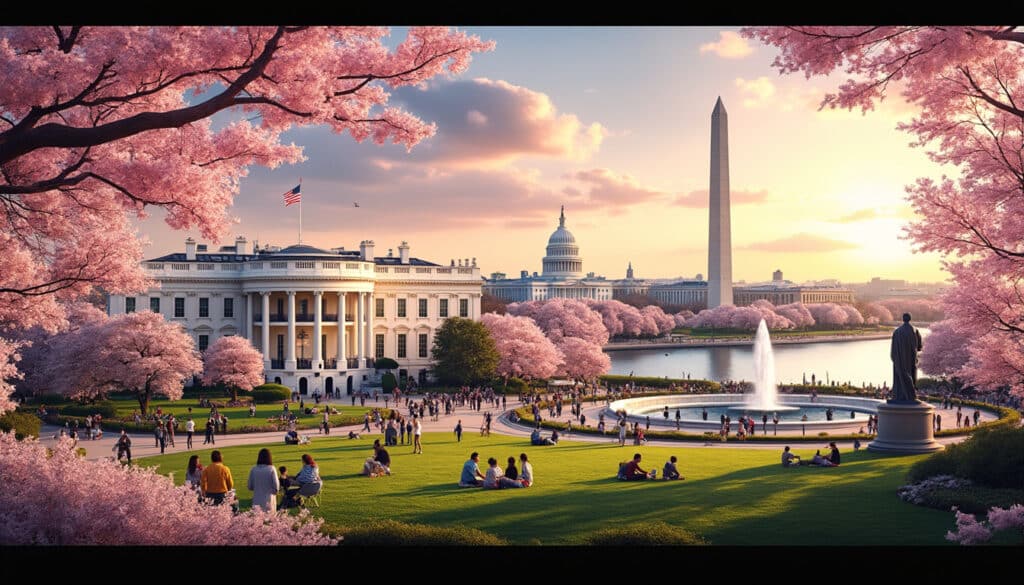
What does Washington DC look, smell, feel like?
The rich tapestry of Washington, D.C. is not just its political prominence but an encompassing blend of influence and experience. Founded with intent and reflective of global inspirations, D.C. is a city of contrasts and history. Visitors might stroll through…

